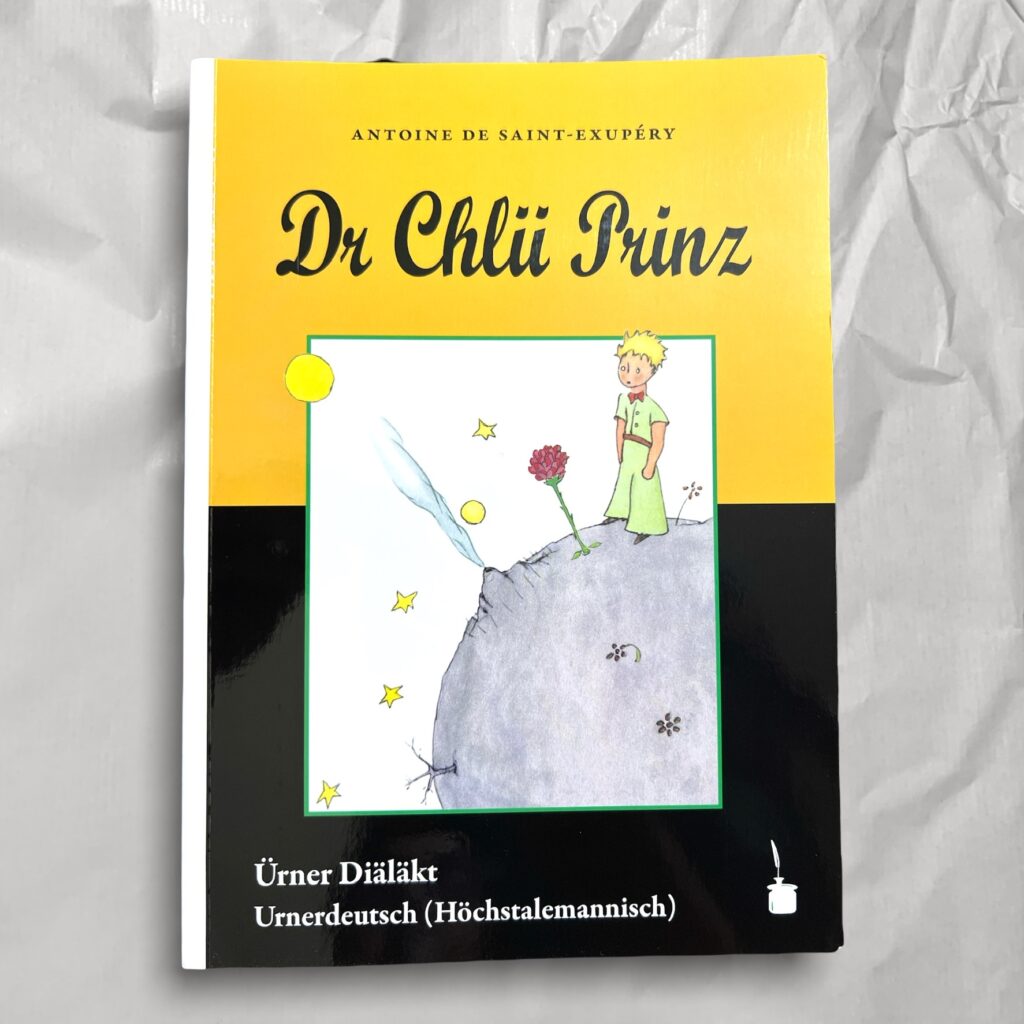
Dr Chlii Prinz — in Urner German.
Urner German refers to the variety of Swiss German spoken in the canton of Uri, one of the central cantons of Switzerland. Urner German is categorised as one of the Highest Allemanic languages, besides Walser German.
As with other Swiss German dialects, Urner German possesses unique phonetic, lexical, grammatical, and syntactical characteristics that distinguish it from Standard German and other dialects within Switzerland. However, specific detailed studies and descriptions of Urner German are less common compared to more widely spoken Swiss German dialects, such as those of Zürich or Bern. Still, we can highlight some general features and aspects that Urner German shares with other Central Swiss dialects, while acknowledging that it has its own distinct identity within this linguistic landscape.
Urner German, like other Alemannic dialects, features a range of vowel sounds, including distinctions based on length and quality that might not exist in Standard German. Diphthongs in Urner German can have specific qualities that set the dialect apart from other regions. The pronunciation of consonants can also show variations, with certain consonants being pronounced more softly or differently than in High German. For example, the hard German “k” might be softened, a characteristic feature of many Swiss German dialects.
The conjugation of verbs in Urner German may retain some archaic features not found in Standard German or even other Swiss German dialects. This includes specific forms for different tenses and the use of modal particles that add nuance to statements. The definite and indefinite articles in Urner German can have forms distinct from those in Standard German, reflecting the dialect’s phonological system and syntactic structure.


